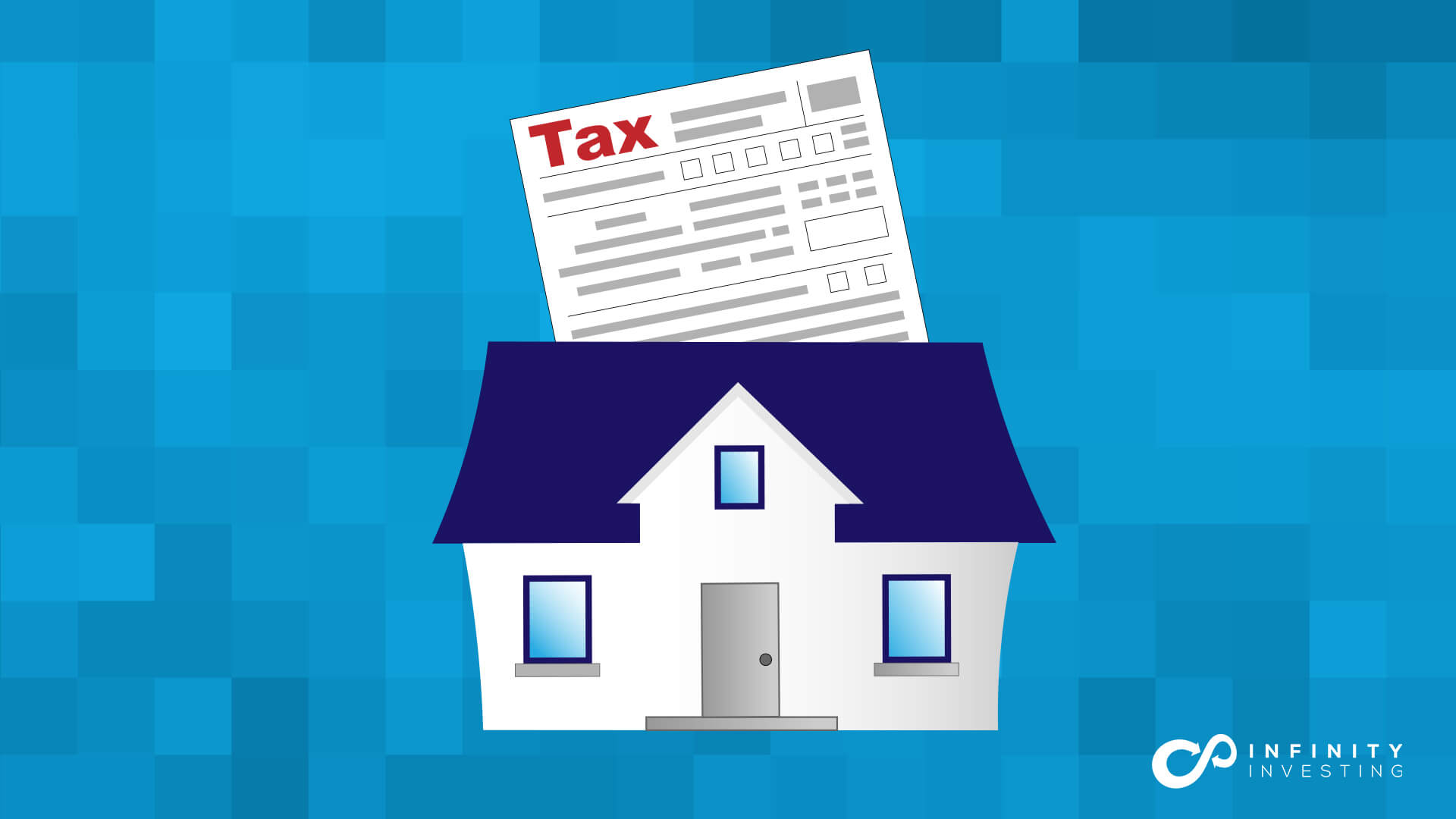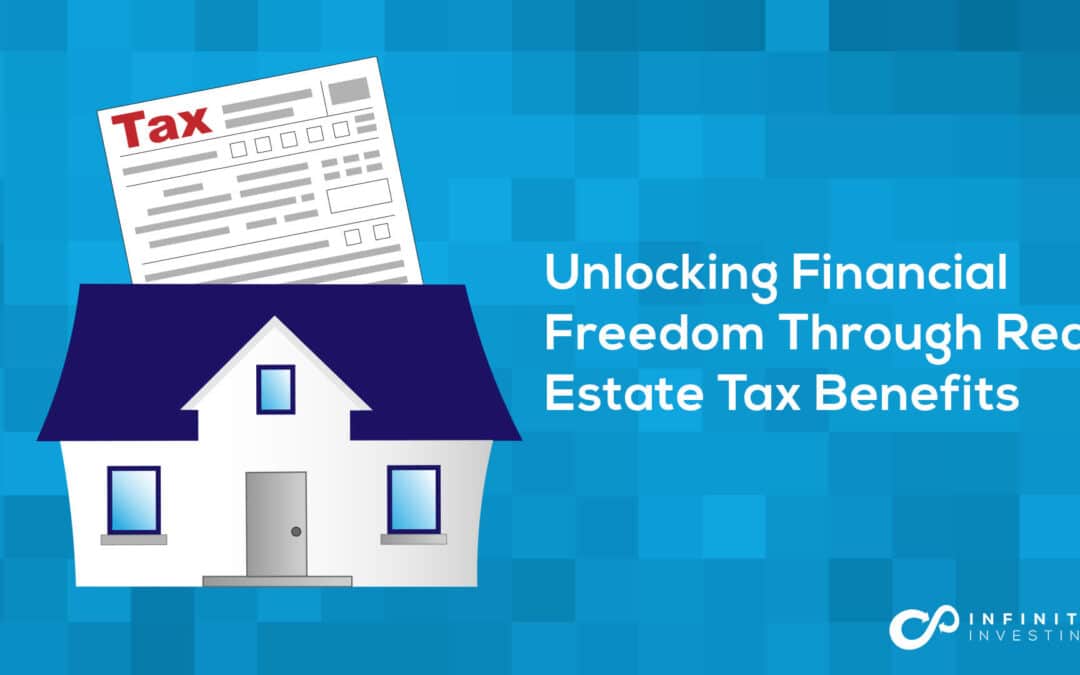
Investing in real estate is one of the best ways to build wealth and diversify your financial portfolio. There are many benefits to real estate investment, including the immediate extra cash flow and the wide variety of property types that you can purchase, such as single-family homes and apartment buildings. Perhaps the greatest benefit to investing in real estate is the tax benefits you can take advantage of, which can save you money over time. Here’s a comprehensive guide to unlocking financial freedom through real estate tax benefits.
Key Takeaways
- In many cases, you can deduct the initial cost of buying a property and any money you spend on home improvements from your taxes.
- You can deduct the interest you pay on a mortgage for a rental property from your income if it’s being used as collateral for the loan and remains in a livable condition.
- You can deduct mortgage interest from your taxes on the first $750,000 of debt for the home. If you bought your home before Dec. 16, 2017, you can deduct up to the first $1 million of interest you pay.
- If you maintain ownership of a home or rental property for more than a year, you’ll pay reduced tax rates on your profits when you sell.
Infinity Investing Featured Event
In this FREE event you’ll discover how the top 1% use little-known “compounders” to grow & protect their reserves. Our Infinity team of experts show you how to be the best possible steward of your finances and how to make your money and investments work for you instead of you working for them. Regardless of your financial situation today, you’ll have a road map to get to where you want to be.
Depreciation
One way that real estate investing opens you to tax benefits is through depreciation. In many cases, you can deduct the initial cost of buying a property and any money you spend on home improvements from your taxes. However, there are a few rules surrounding this. One of these rules is that the property must have a useful life that’s expected to last for more than a year. This means the property must be usable and in a livable condition without the need for a total tear-down or sale to another owner.
There are also rules about the ownership and use of the property. For example, the IRS identifies specific types of properties that qualify as being eligible for depreciation. If an investor owns the property, it’s likely depreciable. Another qualifier is that the property must be used for the investor’s income, not for personal use. If a property is placed in service and sold within the same year, it will likely lose eligibility for depreciation. If you own land without a building on it, the land is not depreciable, meaning you won’t be able to deduct landscaping costs from your taxes.
Once you verify that your property qualifies for depreciation, you can deduct costs from your taxes for a significant period. If you sell or abandon the property or begin using it for personal purposes, it stops being eligible for depreciation. One exception is for rental properties, which are sometimes temporarily unused between tenants. You can still claim depreciation deductions during these times. Typically, you can continue deducting depreciation for the property’s entire useful life, meaning as long as you keep using it for income, you can continue reaping the depreciation benefits.
To determine how much you can save through depreciation deductions on your taxes, review the tax liability levels for your tax bracket. The deduction amount comes directly from the percentage that the IRS determines your tax bracket must pay. If you know your tax bracket, you can use your basis in the property, the recovery period, and your method of depreciation to figure out how much money you’ll save. If you want to be certain your calculations are correct, consider working with an accountant or financial advisor.
Mortgage Interest
Mortgage interest is another way to build financial freedom through real estate tax benefits. You can deduct the interest you pay on a mortgage for a rental property from your income. There are a few guidelines for qualification, which have varied over the years. The current guidelines state that you can deduct mortgage interest from your taxes on the first $750,000 of debt for the home. If you bought your home before Dec. 16, 2017, you can deduct up to the first $1 million of interest you pay.
There are also qualifications that a property must fulfill before you can deduct mortgage interest from your taxes. If the property functions as your primary home, it needs to be collateral for the initial loan, and it must have facilities for sleeping, using the bathroom, and cooking. The type of property doesn’t matter; you can qualify for this deduction with a house, apartment building, mobile home, co-op, houseboat, and more. If you have special circumstances, such as a nontaxable housing allowance from the ministry or military, you can still take advantage of this deduction.
If you own a second home, it will likely also be eligible for this tax break. If the house is used for collateral for the loan and, in the case of rentals, you’re there for more than 10% of the number of days it’s rented, you can deduct the mortgage interest from your taxes. You can also deduct interest you pay on a home equity loan if you use the loan to improve your home or extend it. If you pay off your mortgage early, you can deduct any penalties you receive as interest on your taxes.
There are some costs that are not eligible for the mortgage interest deduction. For example, homeowners insurance and title insurance don’t qualify. If you make extra principal payments on your mortgage, you likely won’t be able to deduct those either. The same is true for settlement costs, deposits, down payments, and mortgage insurance premiums. If you have a reverse mortgage, it likely won’t qualify for the mortgage interest deduction, even if you’ve accrued interest on it.
Capital Gains
You can also save money through real estate tax benefits by taking advantage of capital gains. Capital gains tax is the money you pay in taxes on profits you make when you sell a property or other type of capital asset. If you maintain ownership of a home or rental property for more than a year, you’ll pay reduced tax rates on your profits when you sell. This can help you build wealth by allowing you to hold onto more of the profits when you sell a home or rental property.
There are three different rates for capital gains taxes on property after a year or more of ownership, tied closely to income. Single filers will pay 0% if their taxable income is at or below $44,625. If a single filer makes between $44,626 and $492,300, they’ll pay a rate of 15% in capital gains tax. For a single filer who makes over $492,300, the rate is 20%.
This changes slightly for married couples who are filing jointly. Married couples who make $89,250 or less together will pay 0%, while those who make between $89,251 and $553,850 will pay 15% in capital gains tax. Couples whose joint income is more than $553,850 will pay a rate of 20% on their capital gains.

Learn More About Real Estate Tax Benefits
Are you ready to start unlocking your financial freedom by investing in real estate and taking advantage of all the tax benefits that apply to you? Learn how by using Infinity Investing’s paid membership as a resource for all things finance. With the Starter membership, you’ll get access to strategy sessions with advisors, on-demand training sessions, and online weekly stock rooms that will guide you through your investments. You’ll also get a copy of “Infinity Investing: How the Rich Get Richer and How You Can Do the Same,” a book that provides valuable information about building wealth.
If you’re looking for more in-depth assistance, our 360 Pro membership might be for you. This level includes everything in the Starter membership, as well as extra perks such as the funding community at Anderson Business Advisors, access to mentorship through group coaching, and a five-step formula for generating infinity income and wealth. With an advanced stock trading room, monthly coaching events hosted by investors and instructors, and unlimited Virtual Cash Flow Summit attendance, you’ll be on your way to financial freedom in no time.
This has been an exploration of the ways you can achieve financial freedom through real estate tax benefits. You’ll typically be able to build wealth and retire earlier when you invest in real estate. Whether you qualify for depreciation or can deduct interest on your mortgage from your taxes, you can reach your goals and reap the benefits of a diverse, robust portfolio. If you’re not sure how to start making initial investments and planning for the future, consider speaking with an advisor from Infinity Investing. Our team of financial experts is ready to help.
Infinity Investing Featured Event
In this FREE event you’ll discover how the top 1% use little-known “compounders” to grow & protect their reserves. Our Infinity team of experts show you how to be the best possible steward of your finances and how to make your money and investments work for you instead of you working for them. Regardless of your financial situation today, you’ll have a road map to get to where you want to be.

